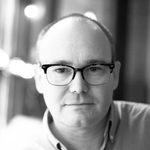Founder Lesson
Anyone who reads my blog knows that I’m a product-first founder. I just looked at the various tags that I use for my blog and 40 of my blog posts (over half) are tagged “product.” I love product.
I focus so much on product because I believe it’s like the foundation of a house. If you make the foundation amazing, then everything else that you do later will come easier.
The best result of a great product is organic growth. The product is so much better than what exists that lots of your users tell their friends about it.
I fall in love with a new product every few months and tell dozens (if not hundreds) of people about it. Waze. Blue Apron. Instagram. Once a product amazes me, I tell everyone. And I don’t think I’m alone here.
This podcast caught my attention because it dives deeper into the different parts of organic growth (once you build a great product).
The VC/product guy in this podcast describes the three parts of organic growth as...
Part 1 - Product loop. The flow that users go through when they are signing-up and using your product. Not a “bolt on”…what happens naturally to pull another user into the product. The fastest growing products nail this one.
Part 2 - Word-of-mouth. The message that your users believe about your product that they pass on to friends. I often think of this as what your super users would say - using just a few words - if they were telling a friend about your product in a 60-second line at a coffee shop. There's a great nugget about product virality in this short video from the CEO of BuzzFeed.
Part 3 - PR. Reporters will write about stories that resonate with them and they love to hear from your super users. If your product is great and your brand is authentic, people with large audiences (from individuals with large Twitter accounts to writers at large publications) will want to tell their audiences about your product.
Speaking of brand, this podcast doesn’t touch on this topic, but I would add “layering on a strong brand” to this list as well. To me brand is simply the personality of your business. If it’s authentic and engaging, it will fuel everything else on this list.
I focus most of my time helping B2C founders in Atlanta, a town that’s still learning how to launch successful B2C startups. What I see most often is founders thinking that consumer awareness and conversion can be manhandled. In other words, many local founders believe that consumers can be acquired like enterprise startups acquire enterprise customers (ie sales funnels). The founders either believe this or believe that it takes lots of capital to acquire consumers through digital advertising.
What is ignored here are the initial basic steps that all consumer product founders should take to insure that they have a product that their customers will use a lot and tell lots of friends about. And please note that all of this is free...any startup that can build product can do all of this.
This foundation can't be ignored if you want to create something great.
Get Right to the Lesson
I’d recommend listening to the entire thing, but to get right to the point go to minute 4:05 of this podcast/video.

Thanks to these folks for helping us all learn faster
Jared Fliesler (@JaredSF), of Matrix Partners (@MatrixPartners)
This Week In Startups (@TWistartups )
Jason Calacanis (@jason)
Jacqui Deegan (@jacqKD)
Jacob Beemer (@jacobbeemer)
Please let me and others know what you think about this topic
Email me privately at dave@switchyards.com or let's discuss publicly at @davempayne.
The best startup advice from experienced founders...one real-world lesson at a time.
